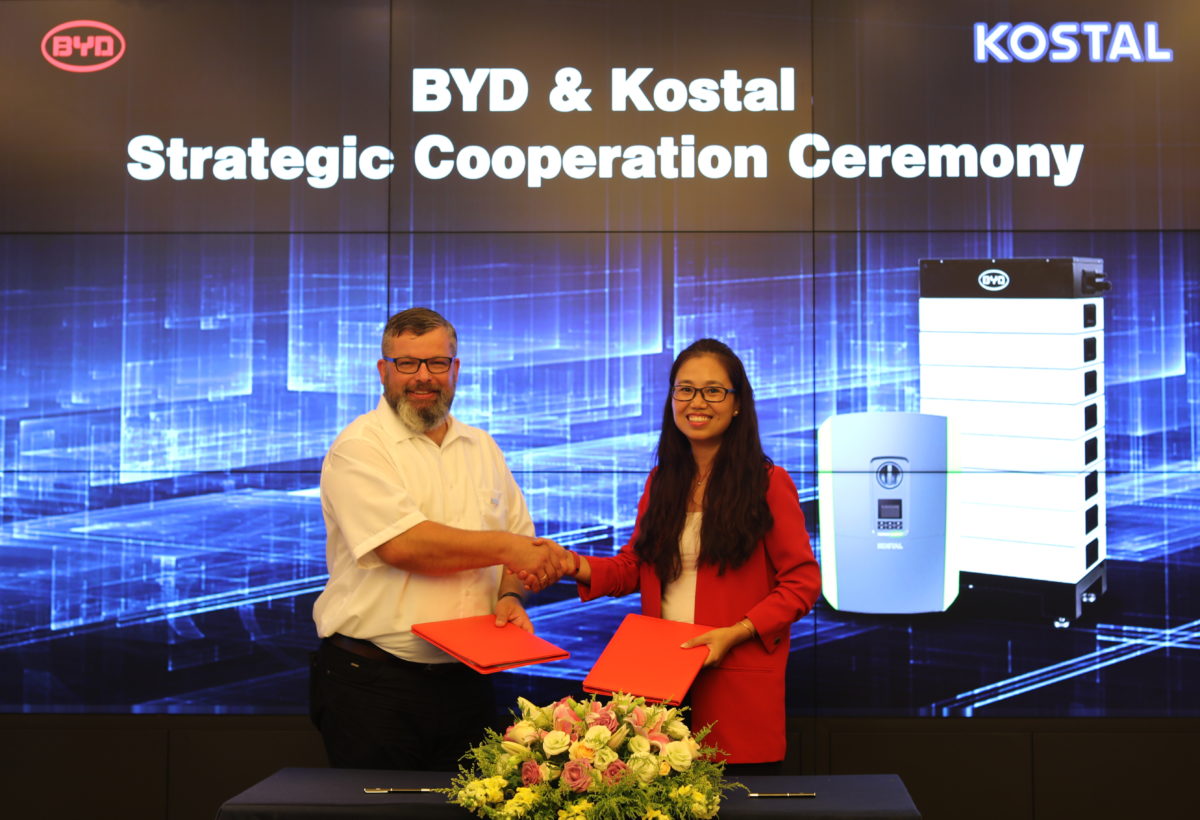Chinese battery manufacturer, BYD and Germany-based inverter maker, Kostal announced their inking of a future strategic partnership.
At an event held in Pingshan, Shenzen, China, representatives of the two companies signed a deal, which will see them further marry their products to provide storage solutions to the residential and commercial solar segments in the European market, and globally.
Under a partnership announced in 2017, Kostal began lining up its Piko inverter offering with BYD’s Battery-Box. It later included other product lines, such as the Plenticore plus.
The new strategic partnership will now see the joint development of specially-bundled solutions, in order to offer an end-to-end energy storage solution.
“We have started offering their Battery-Box HV, which was the first direct high voltage solution on the market, as a bundle with our Piko inverters last year, which turned out to generate high interest in the market,” said Christof Kiesel, Product Manager for PV inverters and storage systems at Kostal.
“Since then we have been working successfully on expanding the joint offering, including solutions with our latest inverter product line Plenticore, and will continue to do so with joint developments under the new strategic agreement.”
In late 2017, in its forecast of the inverter market landscape for 2018, GTM Research said that inverter and battery manufacturer partnerships would be a critical component of market dynamism.
As batteries and inverters are taking on ever more complicated and digitally enabled tasks, streamlined communication interfaces and architectures will be vital to enable this process further. Therefore, such partnerships will result in standardized system components that link inverters and batteries.
GTM Research further reported that an increasing share of integrated solutions will characterize this year's market. Previously, third-party providers integrated batteries and inverters into storage systems. Now inverter and battery manufacturers are singling out these third parties again to come up with new solutions.
In addition to the hardware coupling systems, companies are likely to integrate digital energy management solutions. Since these continuously communicate between inverter and batteries standardized communications protocols and interfaces are vital to these offerings.
This content is protected by copyright and may not be reused. If you want to cooperate with us and would like to reuse some of our content, please contact: editors@pv-magazine.com.




3 comments
By submitting this form you agree to pv magazine using your data for the purposes of publishing your comment.
Your personal data will only be disclosed or otherwise transmitted to third parties for the purposes of spam filtering or if this is necessary for technical maintenance of the website. Any other transfer to third parties will not take place unless this is justified on the basis of applicable data protection regulations or if pv magazine is legally obliged to do so.
You may revoke this consent at any time with effect for the future, in which case your personal data will be deleted immediately. Otherwise, your data will be deleted if pv magazine has processed your request or the purpose of data storage is fulfilled.
Further information on data privacy can be found in our Data Protection Policy.